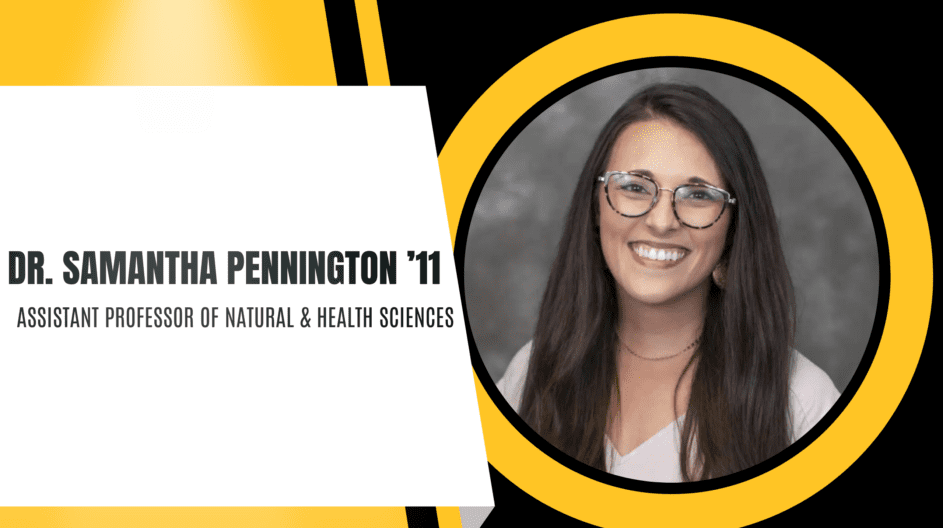
Faculty Spotlight – Dr. Samantha Pennington ’11
Meet Dr. Samantha Pennington ’11, Pfeiffer’s Assistant Professor of Natural & Health Sciences. Dr. Pennington has been teaching for ten years, including her time in graduate school. She teaches a variety of natural and health science courses, including Human Anatomy and Physiology I and II, Nutrition, Cardiovascular Physiology, and a First-Year Seminar.
Before teaching, Dr. Pennington started her career in pharmaceuticals as a chemist. It was there that she become involved with research and development of gummy vitamins. She enjoyed the research aspect so much that she decided to go to graduate school. During her time in graduate school, she worked in a liver physiology lab, which ultimately led to her interest in human physiology.
When asked what she would like for her students to take away from her classes, Dr. Pennington said, “For A+P, Nutrition, and Cardiovascular Physiology students: I want my students to leave my class with a solid understanding of the structure and function of the human body and how different systems in the body interact and depend on each other. Additionally, I’d want to them to have cultivated critical thinking and problem-solving skills so they can apply their knowledge in real-world or clinical scenarios. Lastly, I’d want students to leave with a curiosity and appreciation for the complexity and wonder of the human body.”
As for her First-Year Seminar students, she would like for them to leave her classes feeling confident in their abilities, and ready to ask questions and advocate for themselves. She also wants to see her students grow in the areas of critical thinking, so that they can solve problems and make well-informed decisions.
When asked about achievements in her field, Dr. Pennington said, “Just before coming to Pfeiffer in 2022, I evaluated the functional recovery (ability to produce testosterone) of genitourinary tissue following preservation for transplantation. I also worked on developing advanced technology of vitrification and nanowarming of whole human livers for therapeutic and pharmaceutical applications such as cell/tissue transplantation and long-term organ viability for transplantation. My doctoral research determined sex-related differences in hepatic (liver) perfusion and mitochondrial function in sepsis.